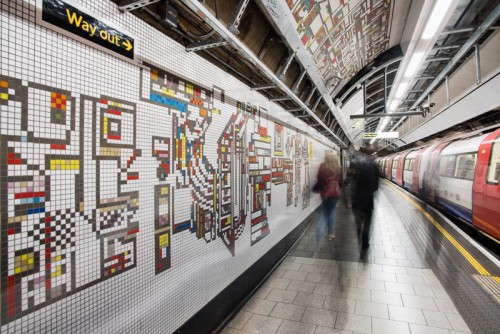MUCH-LOVED mosaics designed for a London Underground station by the celebrated sculptor Eduardo Paolozzi are to be reassembled in the artist’s home city.
The colourful works, which have adorned the walls of Tottenham Court Road station for the past 30 years will eventually be placed on public display at the University of Edinburgh.
The mosaics, which formed arches over the escalators in the station’s main concourse, have been gifted to the University by London Underground managers Transport for London.
The works were removed as part of a major renovation of the station.

The University will use the reassembly of the mosaics in a new undergraduate course, Edinburgh Collections, in the next academic year. They will be used in other courses and in conservation training.
The pieces will be photographed and digitally mapped over the next few years, allowing experts to virtually reconstruct the work before it is physically reassembled by students, researchers and ceramics conservators.
The mosaics were created in 1984 and contain references to computers, George Orwell’s novel 1984, rushing commuters, and objects from the nearby British Museum.
Eduardo Paolozzi – considered one of Britain’s greatest 20th century artists – is one of the founders of the Pop Art movement. Born in Leith in 1924, Paolozzi studied at Edinburgh College of Art during World War Two. He maintained his connection with Edinburgh throughout his life.
As visiting professor to the College in the 1990s, Paolozzi would organise student trips to London, which included a visit to see the Tottenham Court Road mosaics.
The University Art Collection already contains around 150 works by Paolozzi. He is the most represented artist in the collection.
Neil Lebeter, University Art Collections Curator, said: “I am delighted that the University is able to provide a home for this work. The mosaics will be a very important addition to our Art Collection.
“We expect the murals to become an important part of the campus – a major draw for students and wider public. The possibilities for creative engagement through this project are hugely exciting.”